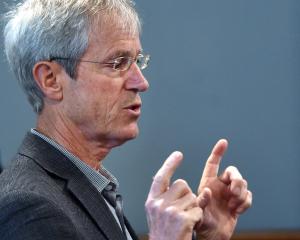However, there was mild disappointment expressed by Forsyth Barr broker Suzanne Kinnaird at the overall result while the mobile figures supplied some interesting reading.
"Mobile was going to be the first thing we wanted to look at. It was surprising to see a net loss of 26,000 customers over the fourth quarter. However, they were low-end pre-pay.
"More interestingly, as of August 14, the company is highlighting that there are 165,000 new XT network customers, of which 34% are new.
"That means 56,100 new customers in total and data billing is up massively," she said.
Telecom reported full-year earnings before interest, tax, depreciation and amortisation (ebitda) of $1.77 billion, down 7% on the previous corresponding period.
Net earnings were down 32% at $483 millon through a combination of a 20% increase in depreciation and amortisation costs and a 32% increase in net finance expenses.
Those increases were partially offset by a 37% decrease in adjusted income tax expense.
Revenue was down 2% at $5.58 billion.
The final dividend of 6c a share was maintained giving a full-year dividend of 24c.
Telecom chief executive Paul Reynolds said the year had been a big one.
"We have made significant operational and service improvements on a broad range of fronts.
Telecom is getting it right as we invest and re-build with the aim of returning to earnings growth."
Customer service and public perception had improved and Telecom had worked on improving its infrastructure as exemplified by the successful launch of the XT mobile network and the progress in the roll-out of fibre-to-the-node broadband.
Growth in expenses was driven partly by increased staffing levels to meet the additional client demand in gen-i and the establish of Chorus as a separate business unit, as well as salary inflation, Dr Reynolds said.
A focus on labour cost control resulted in labour costs reducing in the fourth quarter.
Commenting on the broadband market, Dr Reynolds said growth in the fixed broadband market was slower towards the end of the year, partly due to the increased market penetration.
The market was characterised by relatively light competitive activity during the fourth quarter as much of the focus was on mobile.












